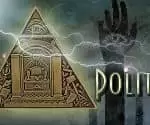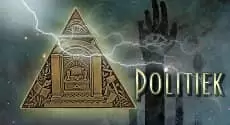Een ander EU
Een ander EU
With French, German and Dutch elections on the horizon, lets look at how populist and independent candidates could reshape Europe and the EU in 2017. ( EXPLAINED IN 5 MINUTES )
____________________
2016 was the year of Brexit and Donald Trump. Radical changes to the norms in both countries, which have sent shockwaves around the world and worry about the future of Global politics. A conservative movement seems to be echoing throughout the world and right wing leaning politicians are gaining support in Europe as well.
France
France’s election in 2017 is gearing to be the most unpredictable election in decades for the country. Many see it as a pivotal moment for France and for the EU as a whole. Just like was seen in the UK and the US, populism in France has propelled untested, anti establishment candidates the the forefront of the political system.
The Far-right leader Marie Le Pen who’s father was also a prominent figure in french far right politics has utilised the social problems in France to recruit new members for her National Front party.
Unemployment, Social integration of minorities and a string of terrorist attacks has left the French people sceptical of the current leadership of Francois Hollande and a distrust with the established political class as a whole.
This feeling has led Marie Le Pen and her party to its widest base of support in recent history. From a relative fringe party in french politics, now she is enjoying nearly a third of public support according to recent polls.
However her anti-eu base and racist undertones have turned many french voters away from her party ideology. A wild card in the French election is former economy minister Emmanuel Macron, an independent candidate who has never held elected office, is gaining seemingly unstoppable momentum on a strong pro-EU platform.
Macron and whoever wins the left-wing primaries on January 22 and 29, will be up against front-runners François Fillon, a Catholic conservative former prime minister, and France’s Marine Le Pen. The outcome of the French elections will undoubtably shake the foundations of the European political system.
The Netherlands
The Dutch elections are even more unpredictable and are set to upset norms in the country drastically.
The anti-Islam leader of the Dutch far-right Party for Freedom (PVV) is on course to win the most seats at the general election in March.
Mr Wilders has pledged to close the Netherlands’ borders, shut down mosques and leave the euro and the EU if he gets into power.
The Centre for European Reform (CER) an election research body in Europe, believes that there is an 80 per cent chance that the Mr Wilders will win.
The Dutch people have lost faith in the established parties in the country and they are unlikely to muster up enough votes in the general election to win a majority even with a broad coalition that could see up to five political parties attempting to work together.
In all likelihood Holland and Mr Wilders will became a prominent thorn in EU political unity in the years to come and Mr Wilders open anti-muslim aproach will send shivers down the spines of liberal thinkers in Europe and around the world.
Germany
in Germany Angela Merkel, the German Chancellor, has said she will seek a fourth term in the 2017 general election, as the country struggles with a surge in far-right extremism, domestic terror attacks and an influx of more than one million migrants.
Angela Merkel has been a very popular Chancellor in Germany, known as the “iron Lady” and having maintained a strong German Economy during the years of recession and playing a pivotal role in managing the EUs Economic problem like the Crisis in Greece, Portugal and Italy.
She is viewed positively still by a majority of Germans A recent poll found that 59% of Germans are in favour of her being re-elected. Even so, the political landscape of Germany could change, as the support of such parties as the right-wing AfD a sister party to the National Front in France, is growing. As well as the growth of independent candidates with more extreme views.
As we get closer to the election in Germany it is likely that independent candidates will emerge in a more prominent way as they have across Europe. So it is still early to predict the likely result.



